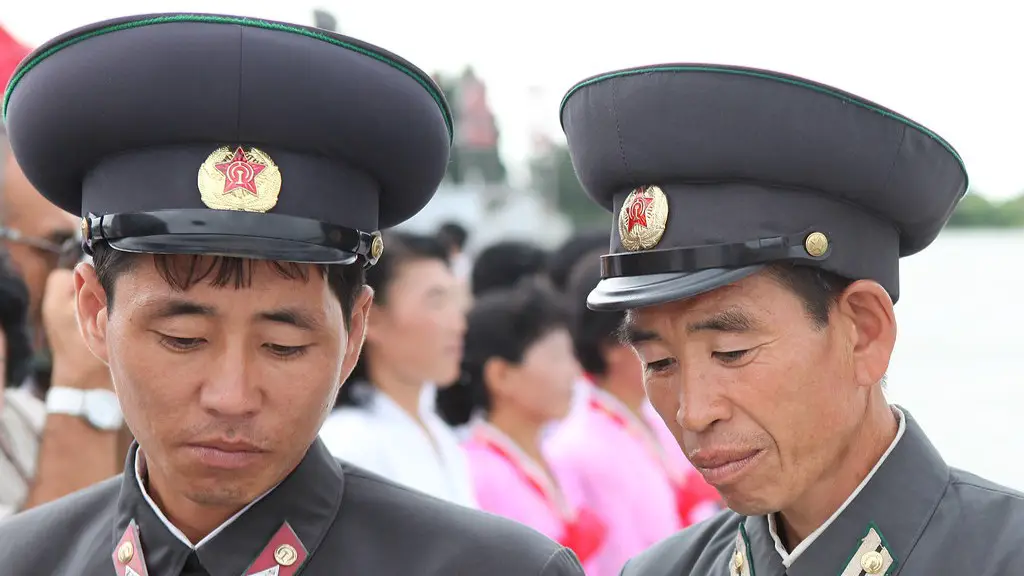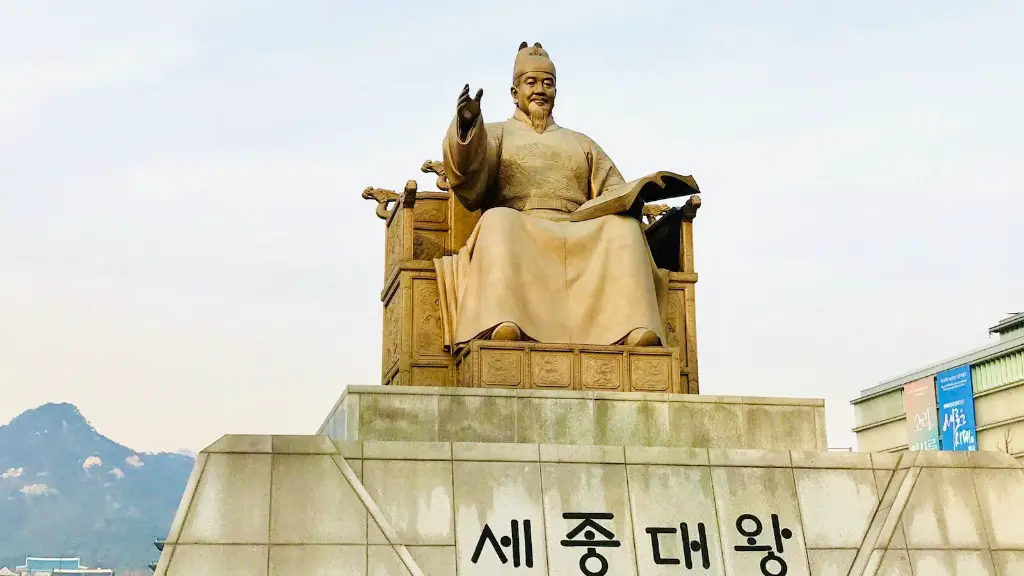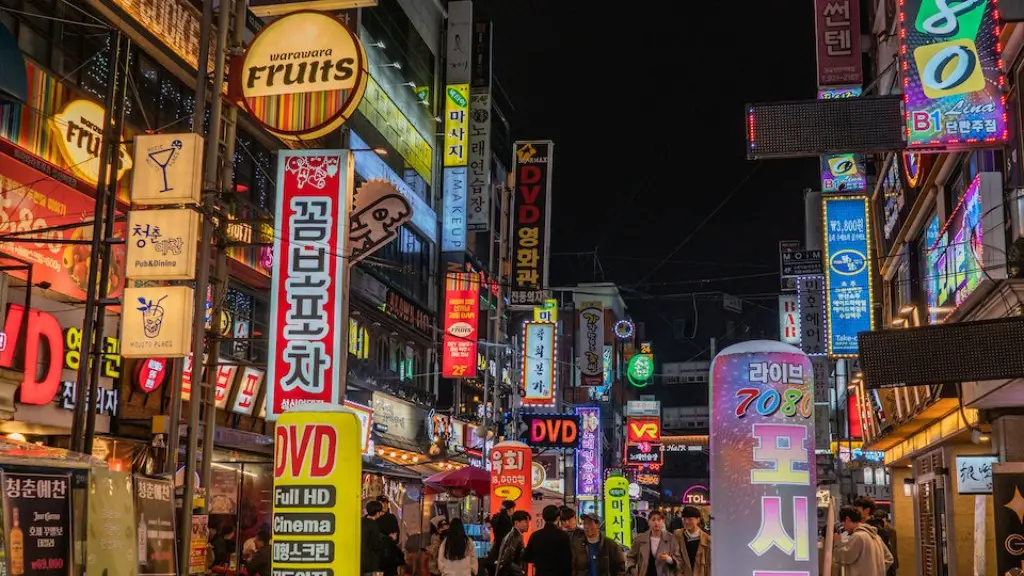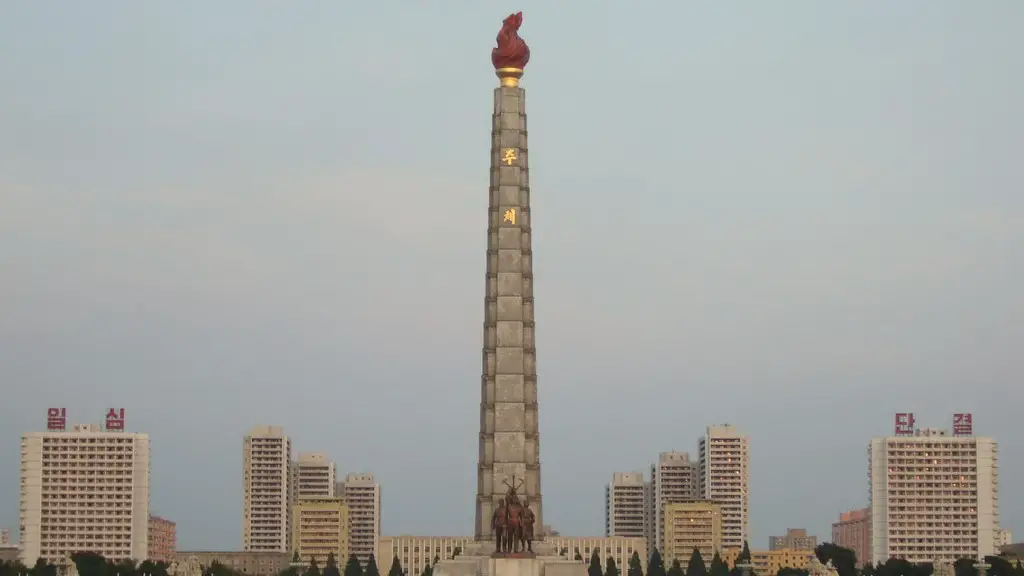History of North Korea’s Nuclear Program
North Korea’s nuclear program began in the 1980s and the country’s defense minister Kim Il Sung approved a nuclear weapons research and development program in 1990. At the time, North Korea was facing threats from the United States and South Korea with whom it was still technically at war. North Korea viewed the development of nuclear weapons as necessary for its security and survival.
In 1994, North Korea and the United States entered into the Agreed Framework, where North Korea agreed to freeze its nuclear program in exchange for aid and other concessions. However, the deal collapsed in 2003 when North Korea withdrew from the Non-Proliferation Treaty (NPT). Since then, the country has been steadily progressing towards becoming a nuclear state.
In 2017, North Korea tested its first intercontinental ballistic missile (ICBM), and since then, the country has tested a number of other nuclear weapons. As of 2020, it is estimated that North Korea possesses up to 60 nuclear warheads, making it one of the world’s nine nuclear-armed states.
The Sanctions Imposed on North Korea
In response to North Korea’s growing nuclear capabilities, the United Nations Security Council has imposed a series of sanctions on the country. These sanctions restrict North Korea’s access to global financial markets and target North Korean individuals and entities linked to the country’s weapons programs. In addition, several countries have imposed their own sanctions on North Korea.
The sanctions have had a severe impact on North Korea’s economy and its access to resources, but they have not stopped the country from developing its nuclear weapons programs. North Korea has consistently maintained that its nuclear weapons are essential for its security and it will not give them up even under economic pressure.
What Would Happen if North Korea Launches a Nuclear Weapon?
If North Korea were to launch a nuclear weapon, the consequences would be catastrophic. A nuclear strike could result in hundreds of thousands of casualties, if not more. In addition, it would likely trigger a global nuclear arms race, as other countries seek to develop their own nuclear weapons in order to counter North Korea.
Furthermore, a nuclear strike would cause widespread economic disruption, with many countries suffering economic losses due to the global economic shockwaves. In addition, it could lead to a collapse of the North Korean regime, triggering additional political, security, and economic instability in East Asia.
Global Efforts to Contain North Korea
In order to prevent North Korea from developing and using nuclear weapons, the international community has been trying to engage with the country in diplomatic talks. In 2018, U.S. President Donald Trump and North Korean leader Kim Jong Un met in Singapore and agreed to work towards denuclearizing the Korean Peninsula. However, progress has been slow and the two sides have yet to reach a final agreement.
In addition, the United States has been trying to pressure North Korea through economic sanctions and diplomatic isolation. The aim is to encourage North Korea to give up its nuclear weapons in exchange for economic relief and security guarantees. So far, these efforts have had limited success, but they have prevented North Korea from advancing its nuclear capabilities further.
Is War with North Korea Inevitable?
While North Korea’s nuclear arsenal has been a source of great concern for the international community, many experts believe war with the country is unlikely. North Korea values its nuclear weapons as a deterrent and is unlikely to use them unless it believes its survival is threatened. In addition, most countries are wary of the potential consequences of a military conflict with North Korea and are therefore unlikely to pursue one.
At the same time, the international community should not forget that North Korea is still a dangerous, unpredictable regime. The country has a long history of aggression, including the sinking of the South Korean navy ship in 2010, and has repeatedly threatened to use nuclear weapons against its enemies. Therefore, the international community must continue to work towards a diplomatic solution to the North Korean nuclear issue.
Possible Solutions for North Korea
Given the complex nature of North Korea’s nuclear program and the potential consequences of military action, it is clear that the international community must pursue diplomatic solutions to the North Korean nuclear issue. One possible solution is to resume negotiations with North Korea, this time focusing on the complete and verifiable denuclearization of the Korean Peninsula.
In addition, the international community could consider offering North Korea security guarantees and economic incentives, such as increased aid and access to global markets, in exchange for its denuclearization. This would ensure that North Korea has an alternative to nuclear weapons, while at the same time, preserving the security of the region and reducing the risk of conflict.
Conclusion
It is clear that North Korea’s nuclear weapons pose a serious risk to global security and stability. The international community must therefore continue to pursue diplomatic solutions to the North Korean nuclear issue, while at the same time, placing economic pressure on the country to prevent further development of these weapons. Only by taking these steps can the world ensure that North Korea does not become a nuclear-armed state.



